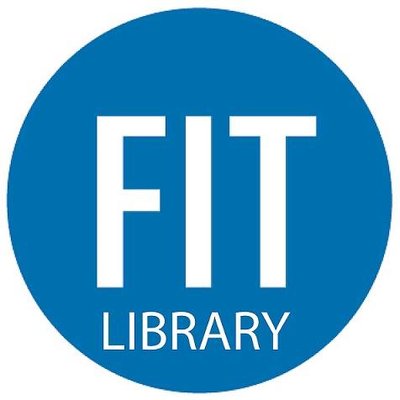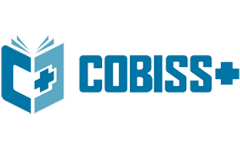Malaysian PBL Approaches: Shaping World-Class TVET Skills towards IR 4.0
DOI:
https://doi.org/10.61841/dxns4331Keywords:
TVET, Employability Skills, Active Learning, Problem-based LearningAbstract
An Industrial Revolution 4.0 promoted by the Malaysian government entitles the rapid growth of the manufacturing sector, thus promoting a multi-level of workforce and skilled work force needed to satisfy the rapid technological development application. The challenges arise in preparing the individuals to meet with the current business at an adequate skill level, and the student needs to be prepared in such a way that they satisfy the business expectations. Looking into this situation, this paper aims to study the concept of correlation between the active learning method known as the problem-based learning (PBL) method and the required employability skills in TVET. As an initiative to enrich the future opportunity of empowering TVET skills, this study assumes that there is a positive relationship between employability skills and PBL approaches in improving student’s quality and skills. The method of study involves documentation analysis on previous research to prove the importance of employability skills in enhancing student’s competencies and the effectiveness of the problem-based learning method in preparing the students to meet the expectations. The main findings of this study claimed that there was a positive relationship between employability skills and PBL learning methods. The results acknowledge that PBL has the ingredients to help develop employability skills and student’s behavior. Through PBL, students learn to become more associates in the teaching and learning processes as they take responsibility throughout the learning process. It would suggest that the educational institution should emphasize the needs of the industry and students by creating awareness and guiding the students in self-analysis and in the acquisition of skills.
Downloads
References
[1] Abdullah, M. (2018). TVET Today, 4th Industrial Revolution Tomorrow! Ministry of Human Resources, Institute of Labor Market Information and Analysis (ILMIA).
[2] Alrahlah, A. (2016). How effective is problem-based learning (PBL) in dental education? A critical review. The Saudi Dental Journal, 155-161.
[3] Aulbur, W., CJ, A., & Bigghe, R. (2016). Whitepaper: Skill Development for Industry 4.0. Roland Berger.
[4] Azian, H., & Mun, L. (2011, April 10). English Work: top jobs only for those who know the language well. The Star.
[5] Bakar, A. R., Mohamed, S., & Hamzah, R. (2013). An Assessment of Workplace Skills Acquired by
Students of vocational and technical education institutions. International Education Studies, 6, 11.
[6] Barrows, H. (2002). Is it truly possible to have such a thing as dPBL?
[7] Beaumont, C. & Frank, B. (2003). Enhancing Employability through Problem-Based Learning. Delivering an Employability Conference.
[8] Common Wealth of Australia. (2002). Employability Skills for Small and Medium-Size Enterprises: Common Wealth of Australia.
[9] Devlin, M., & Samarawickrema, G. (2010). The Criteria of Effective Teaching in a Changing Higher Education Context. Higher Education Res. Develop., 111-124.
[10] Husain, M. Y., Mokhtar, S. B., Ahmad, A. A., & Mustapha, R. (2010). Importance of Employability Skills from Employers' Perspective. International Conference on Learner Diversity 2010, 430-438.
[11] Jailani, Wan Mohd Rashid, Noraini, & Wahid. (2005). Technical and Vocational Education and Training (TVET) from Malaysia Perspective. International TT-TVET EU-Asia-Link Project Meeting, VEDC Malang.
[12] Kaushal, U. (2016). Empowering Engineering Students Through Employability Skills. Higher Learning Research Communications, 6, 4.
[13] Lees, D. (2002). Graduate Employability.
[14] Md Saad, M. S., & Ab. Majid, I. (2014). Employers’ perceptions of important employability skills required from Malaysian engineering and information and communication technology (ICT) graduates. Global Journal of Engineering Education, 16, 110-115.
[15] Mohamad, H.B. (2017). The Impact of Problem-Based Learning on Students' Competencies in Technical Vocational Education and Training. Aalborg Universitetsforlag.
[16] Othman, H., Sulaiman, A., Masrom, N., Mohd Salleh, B., & Buntat, Y. (2010). Malaysian PBL: Employability Skills for Manufacturing. PBL 2010 Congresso Internacional São Paulo, Brasil (pp. 8–12). São Paulo.
[17] Rahmah, I., Ishak, Y., & Wei Sieng, L. (2011). Employers' Perception on Graduates in the Malaysian Service Sector. International Business Management, 5, 184-193.
[18] Rosen, C. (2012). A Problem-Based Approach to Teaching Employability and Independent Learning Skills. The Higher Education Academy (STEM).
[19] Zaharim, A., Yusof, Y., Mohamed, A., Omar, M., Muhammad, N., & Mustapha. (2009). Practical Framework of Employability Skills for Engineering Graduates in Malaysia. International Conference on Engineering Education, Rodos, Greece, 921-927.
[20] Zaharim, A., Yusoff, Y. M., & Omar, M. (2008). Engineering employability skills are required by employers in Asia. Proceedings of the 6th WSEAS International Conference on Engineering Education.
Downloads
Published
Issue
Section
License
Copyright (c) 2020 AUTHOR

This work is licensed under a Creative Commons Attribution 4.0 International License.
You are free to:
- Share — copy and redistribute the material in any medium or format for any purpose, even commercially.
- Adapt — remix, transform, and build upon the material for any purpose, even commercially.
- The licensor cannot revoke these freedoms as long as you follow the license terms.
Under the following terms:
- Attribution — You must give appropriate credit , provide a link to the license, and indicate if changes were made . You may do so in any reasonable manner, but not in any way that suggests the licensor endorses you or your use.
- No additional restrictions — You may not apply legal terms or technological measures that legally restrict others from doing anything the license permits.
Notices:
You do not have to comply with the license for elements of the material in the public domain or where your use is permitted by an applicable exception or limitation .
No warranties are given. The license may not give you all of the permissions necessary for your intended use. For example, other rights such as publicity, privacy, or moral rights may limit how you use the material.
















